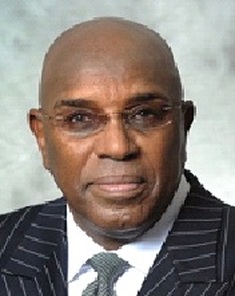Reverend Dr. Gerald Durley: “This Is Our Moment”
 I signed the Atlanta Interfaith Manifesto with mixed emotional feelings. This document is a powerful statement to encourage people of all faiths to stand together and speak out against the fears, hatred, and ignorance which are dividing our country.
I signed the Atlanta Interfaith Manifesto with mixed emotional feelings. This document is a powerful statement to encourage people of all faiths to stand together and speak out against the fears, hatred, and ignorance which are dividing our country.
My feelings were mixed because once again, now sixty years later, there still exists a strong need to publicly denounce many of the same civil and human atrocities that America faced decades ago. I questioned whether the signing of another manifesto would make any difference given the current political climate. I wondered whether this was just another futile effort fueled by the frustrations and disappointments of a few well-intentioned people.
To fully understand my apprehensions for signing another manifesto, one would have to appreciate my personal and professional perspectives as to why I even questioned the validity of another manifesto and its impact in 2016 and beyond.
In 1960 I left Denver, Colorado on a basketball scholarship to pursue an education at Tennessee State University. I had never lived in the South nor experienced blatant overt racism. The bus trip from Denver to Nashville was memorable, because at the Tennessee state line the bus driver “forcefully instructed” me to move to the rear of the bus and sit behind the white line which separated white and Negro passengers. I was unaware of the transportation segregation laws. Arriving at the bus terminal I was told that if I were thirsty that I had to drink from the water fountain labeled “For Colored Only”. Of course, there were those standing nearby who made certain that I drank from the appropriate fountain.
Incidents like these and many others became the foundation upon which I committed my life to fighting to end discriminations of any form against any person or group. As a civil rights veteran, I personally experienced and witnessed, fifty-seven years ago, religious bigotry, racial hatred, anti-Semitism, intolerant behavior against people who were different and worst of all I saw people, of good faith, remain conspicuously silent. I saw and felt violence personified, by people who allowed their fears to overrule their faith. I knew instinctively that when or where any group was being denied their constitutional rights that the oppressors, as well as those who chose to close their ears and eyes to injustice, would suffer.
Back then, as now, we were a divided nation by laws, fears, ignorance, racism, classism, sexism, genderism, and all types of phobias. There were countless protests, marches, speeches, rallies, and yes, manifestos which were written to challenge the bitter climate that pitted people against one another. Segregation and discrimination were a part of the American culture.
In 1954 Brown vs. Board of Education called for the desegregation of public schools, however Southern legislators said that the laws to desegregate were unconstitutional so they wrote and signed “The Declaration of Constitutional Principles of 1956.” It was called “The Southern Manifesto” and it resisted forced integration.
In that environment eighty white ministers from the Atlanta Christian Council signed and issued the first Ministers Manifesto in 1957. The Manifesto broke the foreboding silence of the Christian community. Today, we sign an interfaith manifesto to send forth a faith statement that we will not tolerate racial hatred, bigotry, nor every form of religious discrimination. A second manifesto entitled “Out of Conviction: A Second Statement of the South’s Racial Climate” was issued after The Temple bombing in 1958.
These two manifestos were significant catalysts for changing laws and attitudes by challenging displaced hate, bigotry, and discriminatory behavior.
Now, once again, in 2017 America is being divided by hateful divisions – political, racial, and religious rhetoric. The necessity to “build bridges rather than walls” is mandatory. The challenge and charge must emanate from an interfaith, intercultural army of compassionate, creative, and committed warriors.
Communication is based on understanding, respecting, and trust. The Atlanta Interfaith Manifesto has been created to encourage communication among all of those who pursue the causes of equality, fairness, and justice. This Is Our Moment In Time to not remain silent, but to once again link arms, hearts, minds, and pledge to actively eradicate any of the “negative-isms” which are poisoning our nation.
Let’s Once Again:
Organize
Strategize
Mobilize
“THE SLEEPING GIANT OF ALL FAITHS HAS BEEN AWAKENED AND WILL SPEAK WITH ONE VOICE”
A veteran of the Civil Rights movement, The Rev. Dr. Gerald L. Durley is now deeply involved in interfaith work. As a World Pilgrim, he has traveled to Israel, Turkey, Jordan and other destinations with Muslims, Christians and Jews to better understand the differences and similarities among people, cultures and beliefs.
Dr. Durley was pastor of the historic Providence Missionary Baptist Church in Atlanta for 25 years and has been intricately involved in global warming climate change discussions across the country. He appears in the film The Great Warming, participated in the Climate Leadership Retreat at the Garrison, and testified before the Environmental Protection Agency. Dr. Durley has worked across faith lines to promote interfaith relations and has been a vocal, outspoken advocate for assisting groups and individuals to communicate across faith disciplines.
